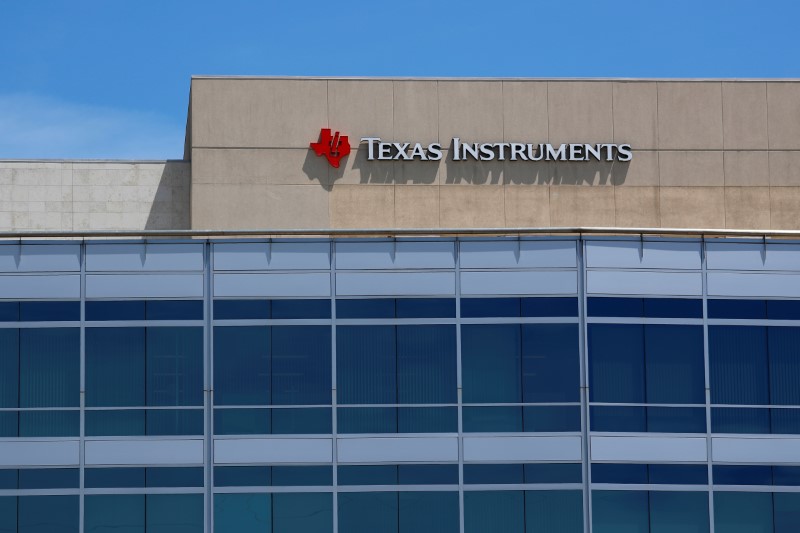Texas Instruments (NASDAQ:TXN) issued a weaker-than-expected Q2 forecast, sending its shares tumbling more than 3% in premarket trading Wednesday.
The company reported Q1 revenue of $4.91 billion, up 14% YoY and above the analyst consensus of $4.72 billion. Strong sales were fueled by “growth in industrial and automotive.”
TXN reported Q2 EPS of $2.35, up from $1.87 in the year-ago period. The EPS print took into account a 2-cent benefit for items that were not included in the initial guidance.
Analog revenue stood at $3.82 billion, up 16% YoY, topping the consensus estimates of $3.67 billion. Embedded processing revenue came in at $782 million, up 2% YoY and compared to the estimated $769 million.
For Q2, the semiconductor maker expects revenue in the range of $4.2 billion to $4.8 billion, missing the consensus estimates of $4.96 billion.
TXN expects EPS in the range of $1.84 to $2.26, short of the estimated $2.28 per share.
“This outlook comprehends an impact due to reduced demand from COVID-19 restrictions in China,” the company said in a press release.
Barclays analyst Blayne Curtis lowered the price target to $150.00 per share from $170.00 and said TXN’s results should be seen as “merely the beginning of a broader cyclical correction.”
“The lower June guidance was a surprise, but we do expect increased shortages and shutdowns to be a bigger trend through earnings… We do see a substantial cycle coming and this reset as only the beginning of a larger correction. TXN history tells us that every DD growth year is usually followed by decline the year after, and after 27% growth in 2021, we view a sizable correction as needed. We do recognize that analog names are typically safer in a market correction but we still don’t believe the stock has corrected enough to become interesting,” Curtis said on the Underweight-rated TXN stock.
BofA analyst Vivek Arya lowered the price target to $190.00 per share from the prior $200.00 and is more bullish on TXN than his Barclays (LON:BARC) colleague.
“We reiterate Buy on a strong track record of consistent share gains, free cash flow generation and returns, and profitability resilience even in a downcycle,” Curtis said in a note.
By Senad Karaahmetovic
